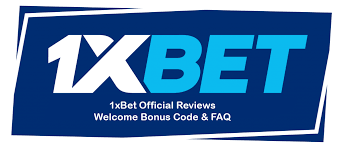
Entering the world of online wagering can be exhilarating and daunting at the same time. For those curious about online sports and event wagering, reputable platforms like online bet 1xbet have helped popularize live markets, generous odds, and mobile-first experiences that make placing a stake as simple as a few taps or clicks. However, excitement should be balanced with knowledge: understanding the mechanics of online bet, protecting your funds and data, and practicing responsible play are essential for long-term enjoyment.
What is online bet? At its core, online betting lets you place wagers on the outcome of sporting events, esports, political polls, entertainment competitions, and a variety of other markets using internet-based platforms. Bookmakers set odds that represent the probability of each outcome and determine payouts. Modern operators offer pre-match markets, in-play (live) betting, accumulators (parlays), prop bets, and specialty markets tailored to niche interests.
Choosing the right bookmaker is the first practical step. Look for a license from a recognized regulator, clear terms and conditions, transparent payout policies, and a history of prompt withdrawals. Compare welcome offers and ongoing promotions carefully: bonuses may look attractive but often come with wagering requirements and restrictions. User reviews and independent audits can reveal how a platform treats its customers over time.
Understanding odds is fundamental to making informed bets. Decimal odds, fractional odds, and moneyline formats express the same information differently. Decimal odds show total return per unit staked (e.g., 2.50 returns $2.50 for each $1 wagered); fractional odds show profit relative to stake (e.g., 3/1 means $3 profit for each $1), and moneyline is commonly used in the U.S. Familiarize yourself with converting between formats and calculating implied probability so you can spot value — when your assessment of an outcome’s likelihood is greater than the implied probability of the odds offered.
Bankroll management is the practical discipline that separates casual bettors from consistent long-term players. Set aside a dedicated bankroll — money you can afford to lose — and determine unit sizes (commonly 1–5% of the bankroll per bet). Use staking strategies that match your risk tolerance: flat staking (same amount each bet) reduces volatility, while proportional staking adjusts bets based on bankroll size. Avoid chasing losses, doubling down impulsively, or allocating large portions of funds to single outcomes unless you have a justified edge.
Research and strategy are multifaceted. For sports betting, combine quantitative data (form, head-to-head stats, injury reports, venue factors) with qualitative insights (weather, team motivation, tactical changes). For in-play betting, watch matches live when possible: momentum swings and in-game adjustments can create rapid value opportunities, but they also demand quick decision-making and emotional control. Document your bets, outcomes, and reasoning — a personal betting journal reveals patterns, strengths, and weaknesses over time.
Technology and user experience matter. Mobile apps and responsive websites offer faster access to markets, live streaming, and instant cash-out features. Use secure devices and up-to-date browsers, enable two-factor authentication when available, and vet payment methods. Trusted operators support multiple deposit and withdrawal options (cards, e-wallets, bank transfers, sometimes cryptocurrencies) and offer clear timelines and fees for transactions.

Responsible gambling is not negotiable. Set limits on deposits, stakes, losses, and session duration. Many platforms provide built-in tools for self-exclusion, cooling-off periods, and hard limits — use them proactively if you notice gambling is interfering with finances, relationships, or mental health. If you suspect a problem, seek support from professional organizations and hotlines that specialize in gambling addiction. Early intervention improves outcomes.
Legal and regulatory considerations differ by country and even by region within countries. Before wagering, confirm that online betting is lawful in your jurisdiction and that the operator accepts customers from your location. Licensed operators must comply with anti-money-laundering rules, age verification, and responsible gaming mandates. Understanding the legal framework protects you from account closures, blocked withdrawals, or inadvertent exposure to illicit operators.
Bonus offers and promotions can boost returns but require scrutiny. Free bets, deposit matches, and accumulator boosts are common, but they often come with wagering requirements, minimum odds, and time limits. Read the fine print, calculate the effective value of offers, and avoid plumping for every promotion — a few well-understood bonuses used strategically are preferable to chasing dozens of marginal deals.
Live betting, or in-play wagering, has transformed the pace of online bet. Markets update quickly during events, and cash-out options let you lock in profits or cut losses before an event ends. While in-play markets offer unique opportunities, they also amplify speed-related risks: latency, emotional reactions, and overtrading can erode expected value. Use real-time data, avoid impulse bets, and maintain disciplined staking rules.
Privacy and security deserve ongoing attention. Use strong, unique passwords for wagering accounts, enable multifactor authentication, and be cautious with public Wi-Fi when transacting. Check platform privacy policies to see how personal data is handled. Reputable operators use encryption, independent audits, and secure payment processors to protect customers; if an operator’s security posture is unclear, consider alternatives.
Advanced bettors often apply data modeling, statistical analysis, and automated tools to gain an edge. Predictive models, Monte Carlo simulations, and value-finding algorithms can identify discrepancies between market odds and calculated probabilities. However, model outputs are only as good as their inputs: reliable data, proper validation, and continuous refinement are necessary. For most recreational bettors, a mix of disciplined research, prudent bankroll management, and selective use of automation or tip services is sufficient.
Social and community aspects of online bet are growing. Forums, podcasts, and social media channels allow bettors to exchange ideas, discuss strategies, and critique bookmaker policies. While community insights can be valuable, treat tipsters and influencer recommendations with skepticism. Evaluate claims empirically and remember that anecdotal success does not equate to repeatable skill.
In summary, online bet offers diverse opportunities for entertainment and potential profit, but success hinges on informed decision-making, disciplined money management, awareness of regulatory frameworks, and respect for personal limits. Choose credible bookmakers, understand odds, use research to find value, protect your privacy, and prioritize responsible play. When approached thoughtfully, online betting can remain a stimulating pastime rather than a source of harm.

Recent Comments